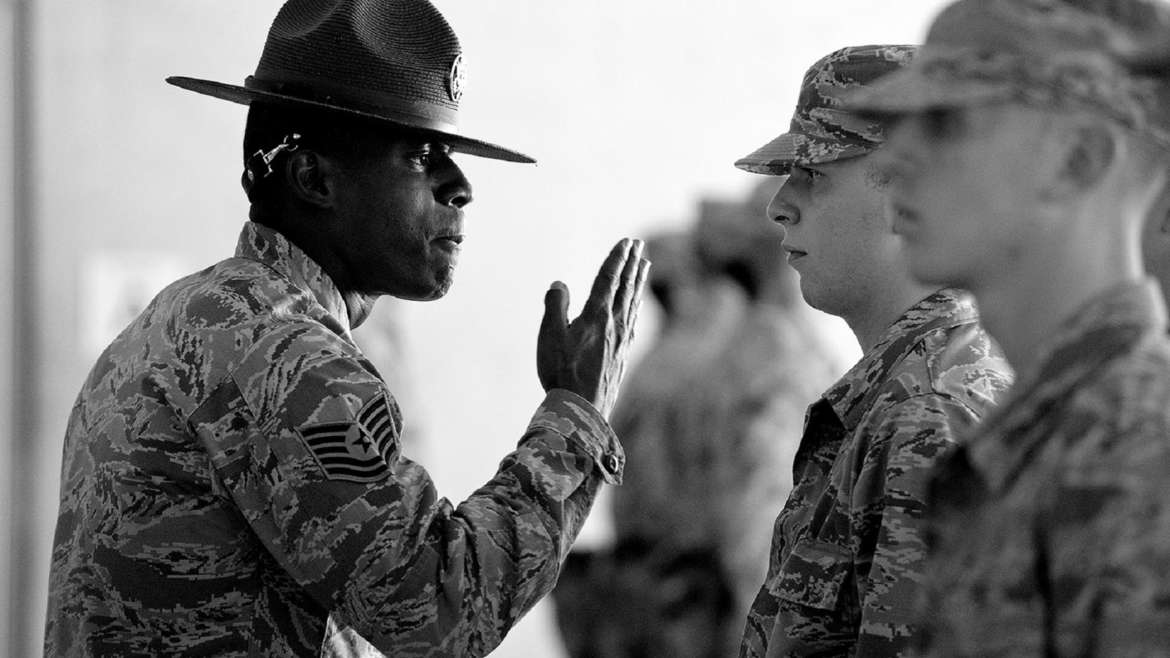Occasionally, a general or admiral sets a senseless policy, makes an inexplicable decision, and generally speaking (no pun intended), shows poor leadership in the administration of military justice. Anyone who has served in any branch of the U.S. military has witnessed harsh punishment where leniency was warranted, and witnessed leniency where harsh punishment was warranted.
It is unsettling to see a good soldier, sailor, airman, or Marine ruined by harsh discipline over a seemingly minor violation of the Uniform Code of Military Justice (UCMJ). It is also unsettling to see minor violations portrayed by military prosecutors as “serious offenses” and handled accordingly.
One example would be former Navy Machinist Kristian Saucier who was sentenced to 12 months of confinement, a $100 fine, and an other-than-honorable discharge for taking photos inside the engine room of a nuclear submarine. Saucier had repeatedly recognized that he made a mistake but maintained he meant no harm and only wanted to take photos as mementos.
“All I ever wanted to do was serve my country,” Saucier said. “I honestly believe that the systems that went after me were put in place to protect people like me until I was run through the ringer.”
Saucier, who served his sentence and currently works as a garbage collector, was recently pardoned by President Donald Trump.
At the White House, press secretary Sarah Sanders pointed to Saucier’s exemplary military service as grounds for the president’s decision. She said that he had acted as a mentor to younger sailors, and instructed new recruits.
“Mr. Saucier was 22 years old at the time of his offenses and has served out his 12-month sentence. He has been recognized by his fellow service members for his dedication, skill and patriotic spirit,” said Mrs. Sanders.
“The sentencing judge found that Mr. Saucier’s offense stands in contrast to his commendable military service,” she said. “The president is appreciative of Mr. Saucier’s service to the country.”
The vast majority of military defendants under similar circumstances will not receive presidential pardons, nor receive clemency or similar relief after being unfairly crushed. Such an experience with the military justice system leaves veterans with a lifetime of ineligibility for benefits. Far worse, it leaves them with a stigma that feels undeserved.
Another example is former Marine Corps Lt. Gen. H.P. Osman, who commanded the Second Marine Expeditionary Force from 2002-2004. Osman was cited by a military judge in 2004 for “apparent unlawful command influence” by referring to two criminal defendants as “pond scum” and saying one should be castrated.
Gen. Osman made the offending remarks to groups of Marines at a time when the convictions of two defendants were still under review by officers under him.
“The court finds that apparent unlawful command influence has occurred because of certain comments made by Lt. Gen. Osman at two officers’ calls on 10 December 2003,” wrote the judge, Col. Alvin W. Keller.
In addition to calling the two Marines “pond scum,” Gen. Osman said that an officer must at some point shift loyalty from the individual Marine to protecting the Corps as an institution. And the general said the two Marines should have received punitive discharges instead of being allowed to stay in the Corps after their convictions at court-martial.
“The court finds that some evidence has been raised that a senior officer, Lt. Gen. Osman, made certain remarks to subordinates on 10 December 2003 that could constitute unlawful command influence,” Col. Keller wrote. “Such remarks were not a legitimate and necessary exercise of leadership.”
These are excerpts that appeared in the Washington Times shortly after the ruling occurred.
Generals and admirals, when justifying harsh punishment, or aligning the justice system to achieve that outcome, usually refer to, “protection of the institution”.
We find such justifications in many cases to be misguided and specious. They often have political overtones, intended to gain a public “good order and discipline” benefit for the commander.
Public Triumph may assist you if your case meets one or more of the following criteria:
- Demonstrated selective prosecution.
- The convening authority fails to account for a career of otherwise fruitful military service, including combat deployment.
- Cases of unlawful command influence or apparent unlawful command influence.
- A demonstrated history or pattern on the part of a general or flag officer as convening authority to seek and impose harsh punishment, relative to others who receive lesser or no punishment for similar offenses.
If this applies to you or your case, be patient. If one or more of the charges against you are weak, you have leverage. As the case progresses, charges may be dropped, weakening the general’s position. If there is room for leniency during this stage, allow for it by refraining from public comment.
If the case is resolved either completely or partially in your favor, public relations can be used to rehabilitate your reputation. The timing is crucial. We recommend against it in most cases while still on active duty. Once released from active duty, you are free to tell your story.




